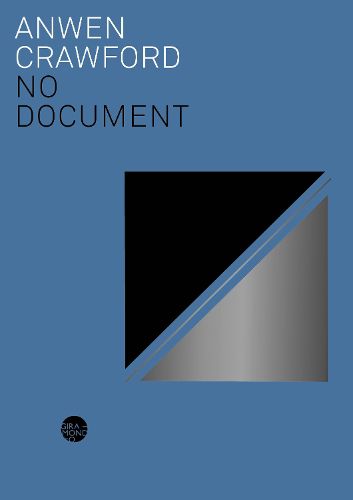Readings Newsletter
Become a Readings Member to make your shopping experience even easier.
Sign in or sign up for free!
You’re not far away from qualifying for FREE standard shipping within Australia
You’ve qualified for FREE standard shipping within Australia
The cart is loading…






No Document is an elegy for a friendship cut short prematurely by death. The memory of this friendship becomes a model for how we might relate to others in sympathy, solidarity and rebellion. At once intimate and expansive, Anwen Crawford’s book-length essay explores loss in many forms: disappeared artworks, effaced histories, abandoned futures. From the turmoil of grief and the solace of memory, her perspective embraces histories of protest and revolution, art-making and cinema, border policing, and especially our relationships with animals.
No Document shows how love and resistance echo through time and is an urgent, groundbreaking work of non-fiction that reimagines the boundaries that divide us - as people, nations and species - and asks how we can create forms of solidarity that endure.
Anwen Crawford is best known for her writing as a critic, but here she draws on her background as a zine-maker and visual artist, and her training in poetry, to develop a new way of writing about the past, using a symphonic method of composition and collage. No Document is an urgent, groundbreaking work of non-fiction that reimagines the boundaries that divide us - as people, nations and species - and asks how we can create forms of solidarity that endure.e and resistance echo through time.
$9.00 standard shipping within Australia
FREE standard shipping within Australia for orders over $100.00
Express & International shipping calculated at checkout
Stock availability can be subject to change without notice. We recommend calling the shop or contacting our online team to check availability of low stock items. Please see our Shopping Online page for more details.
No Document is an elegy for a friendship cut short prematurely by death. The memory of this friendship becomes a model for how we might relate to others in sympathy, solidarity and rebellion. At once intimate and expansive, Anwen Crawford’s book-length essay explores loss in many forms: disappeared artworks, effaced histories, abandoned futures. From the turmoil of grief and the solace of memory, her perspective embraces histories of protest and revolution, art-making and cinema, border policing, and especially our relationships with animals.
No Document shows how love and resistance echo through time and is an urgent, groundbreaking work of non-fiction that reimagines the boundaries that divide us - as people, nations and species - and asks how we can create forms of solidarity that endure.
Anwen Crawford is best known for her writing as a critic, but here she draws on her background as a zine-maker and visual artist, and her training in poetry, to develop a new way of writing about the past, using a symphonic method of composition and collage. No Document is an urgent, groundbreaking work of non-fiction that reimagines the boundaries that divide us - as people, nations and species - and asks how we can create forms of solidarity that endure.e and resistance echo through time.
I place my review copy of Anwen Crawford’s No Document on the ledge under the mirror at my hairdresser appointment. The book is full of coloured tags and my hairdresser, who has just told me she was born in the same town as Chekhov, takes note. I still have a handful of pages left, I admit to her, and I’m waiting for something that I know will not come.
My own statement catches me by surprise. It rings true but throws my hairdresser off track. No Document is a poetic book-length essay that makes use of collage and repetition, it does not contain or enclose a narrative but entangles Crawford’s grief for the loss of her friend, art-collaborator and comrade in the narrative of several vexed histories – our relationship with animals, the disappearing Sydney of their youth, Australia in the age of mandatory detention, and the horizon of revolution during the perpetual brutality of late capitalism. In this context Crawford asks not merely who are we, but what is ‘we’?
It is a book of melancholies, I say to my hairdresser, of approaching forty, of recalling twenty, of losing your comrade at thirty. Wistful? she asks. No no, I protest. To read this book is to witness a writer’s struggle to elegise her friendship against the spectre of sentimentality. As one of Australia’s sharpest critics of music, art and pop culture, Crawford will not, I know, write a wistful book. In her writing the feeling of loss is not inert, but, powered by the text’s symphonic form it swirls with potential. In the few pages left there will be no easy way out, no revelation and nothing neat but a becoming future. In Chekhov we face death, wasted potential and the atrocity of history but must resist bitterness and vengeance. Instead we must learn how to pursue justice. In Crawford, one of my coloured tags marks the line, ‘what do we do / when we bring the fences down?’